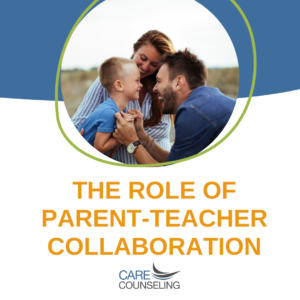The Role of Parent-Teacher Collaboration
 In the realm of education, the partnership between parents and teachers is a cornerstone of student success and well-being. The bridge that connects these two integral pillars is often the school counselor, who plays a vital role in fostering effective communication and collaboration. As advocates for students’ holistic development, school counselors are uniquely positioned to facilitate a harmonious partnership between parents and teachers.
In the realm of education, the partnership between parents and teachers is a cornerstone of student success and well-being. The bridge that connects these two integral pillars is often the school counselor, who plays a vital role in fostering effective communication and collaboration. As advocates for students’ holistic development, school counselors are uniquely positioned to facilitate a harmonious partnership between parents and teachers.
The Importance of Parent-Teacher Collaboration:
Effective parent-teacher collaboration offers numerous benefits for students, including:
- Holistic Support: When parents and teachers work together, students receive consistent support that extends beyond the classroom. This collaboration addresses both academic and social-emotional needs, nurturing well-rounded individuals.
- Personalized Learning: Parents provide valuable insights into their child’s learning style, strengths, and areas of improvement. This information helps teachers tailor their instructional methods to accommodate individual needs.
- Enhanced Accountability: When parents are actively engaged in their child’s education, students are more likely to remain motivated and accountable for their academic responsibilities.
- Smooth Transitions: Collaborative efforts ensure smooth transitions between school levels and grades, ensuring that students’ progress is seamless and well-supported.
The Role of School Counselors:
School counselors play a pivotal role in facilitating parent-teacher collaboration and ensuring its effectiveness. Here’s how they contribute to this partnership:
- Building Trust:
School counselors cultivate an atmosphere of trust, where parents and teachers feel comfortable sharing concerns, insights, and ideas. This trust forms the foundation for open communication.
- Bridging Communication Gaps:
Miscommunication can lead to misunderstandings. School counselors serve as intermediaries, clarifying messages and ensuring that parents and teachers are on the same page.
- Hosting Collaborative Meetings:
School counselors can organize parent-teacher conferences, where all stakeholders come together to discuss a student’s progress, strengths, challenges, and strategies for improvement.
- Individualized Plans:
School counselors work with teachers to create individualized education plans (IEPs) or support plans for students with specific needs, ensuring that parents are involved in the decision-making process.
- Sharing Resources:
Counselors provide parents with resources that can aid in their child’s educational journey. These resources might include strategies for effective study habits, stress management, and promoting a positive learning environment at home.
- Supporting Transitions:
Whether a student is transitioning to a new grade, school, or educational institution, counselors guide parents and teachers in preparing the student for a successful transition.
Strategies for Effective Collaboration:
- Regular Check-Ins:
School counselors can suggest regular communication between parents and teachers, whether through emails, phone calls, or meetings. This keeps everyone updated on the student’s progress and any concerns that arise.
- Shared Goals:
Encourage parents and teachers to set shared goals for the student’s academic and personal development. These goals create a sense of purpose and direction.
- Strengths-Based Approach:
School counselors promote a strengths-based approach, where parents and teachers focus on leveraging the student’s strengths to overcome challenges.
- Active Listening:
Counselors teach active listening skills, enabling parents and teachers to truly understand each other’s perspectives and collaborate effectively.
- Constructive Feedback:
Emphasize the importance of providing constructive feedback that is focused on solutions rather than blame.
The Ripple Effect:
When school counselors facilitate effective parent-teacher collaboration, the positive impacts ripple throughout the entire school community:
- Improved Student Outcomes:
Students benefit from a holistic support system that addresses their academic and emotional needs, leading to improved learning outcomes.
- Positive School Culture:
Collaborative efforts contribute to a positive school culture where parents, teachers, and students feel valued and engaged.
- Stronger Relationships:
As parents and teachers collaborate, they build stronger relationships that promote mutual respect and understanding.
- Enhanced Problem-Solving:
Collaborative approaches result in more effective problem-solving strategies, benefiting all stakeholders.
School counselors are catalysts in this partnership, nurturing an environment of trust, communication, and shared goals. By working together, parents and teachers provide students with a strong foundation for growth, learning, and personal development. Through the guidance of school counselors, this collaboration becomes a powerful force for creating an educational journey that is not only enriching but also transformative.



























